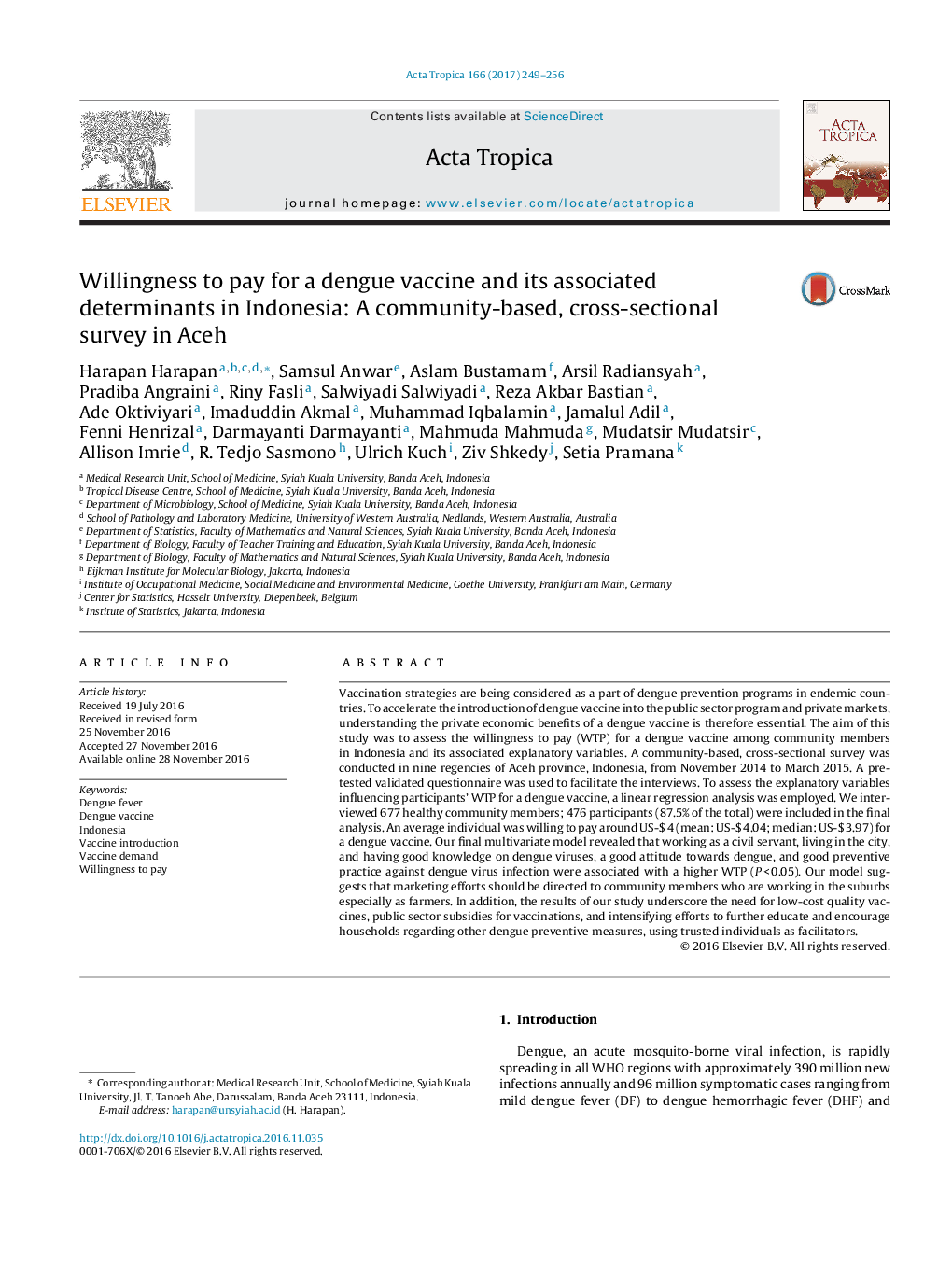| Article ID | Journal | Published Year | Pages | File Type |
|---|---|---|---|---|
| 5670908 | Acta Tropica | 2017 | 8 Pages |
â¢Willingness to pay (WTP) for a dengue vaccine and its associated explanatory variables were assessed in Aceh, Indonesia.â¢The mean and median of WTP for a dengue vaccine are US-$ 4.04 and US-$ 3.97, respectively.â¢Working as civil servants and living in the city are associated with a higher WTP.â¢Good knowledge of dengue viruses and good attitude towards dengue are associated with a higher WTP.â¢Good preventive practice against dengue virus infection is associated with a higher WTP.
Vaccination strategies are being considered as a part of dengue prevention programs in endemic countries. To accelerate the introduction of dengue vaccine into the public sector program and private markets, understanding the private economic benefits of a dengue vaccine is therefore essential. The aim of this study was to assess the willingness to pay (WTP) for a dengue vaccine among community members in Indonesia and its associated explanatory variables. A community-based, cross-sectional survey was conducted in nine regencies of Aceh province, Indonesia, from November 2014 to March 2015. A pre-tested validated questionnaire was used to facilitate the interviews. To assess the explanatory variables influencing participants' WTP for a dengue vaccine, a linear regression analysis was employed. We interviewed 677 healthy community members; 476 participants (87.5% of the total) were included in the final analysis. An average individual was willing to pay around US-$ 4 (mean: US-$ 4.04; median: US-$ 3.97) for a dengue vaccine. Our final multivariate model revealed that working as a civil servant, living in the city, and having good knowledge on dengue viruses, a good attitude towards dengue, and good preventive practice against dengue virus infection were associated with a higher WTP (PÂ <Â 0.05). Our model suggests that marketing efforts should be directed to community members who are working in the suburbs especially as farmers. In addition, the results of our study underscore the need for low-cost quality vaccines, public sector subsidies for vaccinations, and intensifying efforts to further educate and encourage households regarding other dengue preventive measures, using trusted individuals as facilitators.
